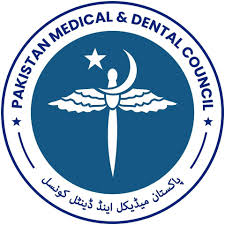Role of Level-IV Post-graduation in Basic Sciences in Research Development and Quality Improvement of Graduate Medical Education in Pakistan
DOI:
https://doi.org/10.37018/JFJMU/4849Abstract
Medical education has undergone evolutionary and dynamic changes. More emphasis is on curricula to be spirally integrated, learner centered, community oriented and competency-based. The goal remains to provide best evidence-based and patient-centered personalized care. Integration of preclinical and clinical disciplines remains the key to achieve this goal. Thus the role of basic medical science teachers has also evolved to accomplish the required outcome.1 A detailed knowledge of clinically oriented basic medical sciences is a prerequisite to inculcate the lifelong critical thinking and problem-solving skills in healthcare professionals, acquisition of clinical competence, diagnostic accuracy and selection of most appropriate evidence-based management according to patients’ needs.2 To face the dynamic curricular needs, there are growing challenges to the quality of basic medical education in the country. These include lack of motivated and trained basic science faculty, acquisition of teaching skills according to modern day requirements, stepwise clinical integration, barriers in pursuing undergraduate and postgraduate research, limited access to well-maintained data registries and research software in basic sciences.3,4 As per global consensus, competency-based learning in basic medical sciences is essential in present century’s clinical practice and the ability to apply basic medical science concepts to clinical practice is an essential and relevant indicator of educational outcomes in medical institutions.5
Downloads
Published
How to Cite
Issue
Section
License
The Journal of Fatima Jinnah Medical University follows the Attribution Creative Commons-Non commercial (CC BY-NC) license which allows the users to copy and redistribute the material in any medium or format, remix, transform and build upon the material. The users must give credit to the source and indicate, provide a link to the license, and indicate if changes were made. However, the CC By-NC license restricts the use of material for commercial purposes. For further details about the license please check the Creative Commons website. The editorial board of JFJMU strives hard for the authenticity and accuracy of the material published in the journal. However, findings and statements are views of the authors and do not necessarily represent views of the Editorial Board.

















